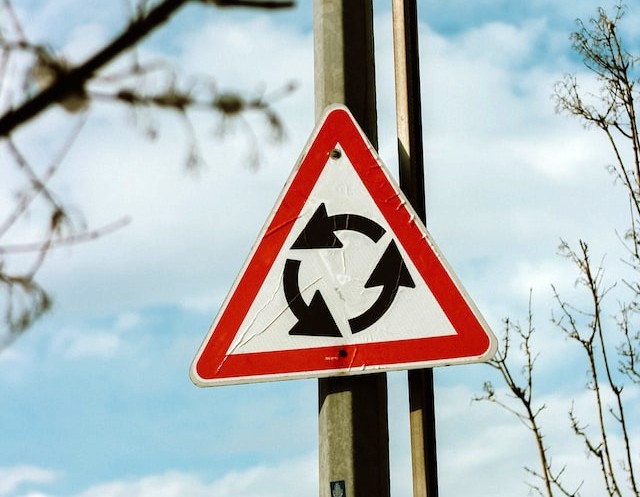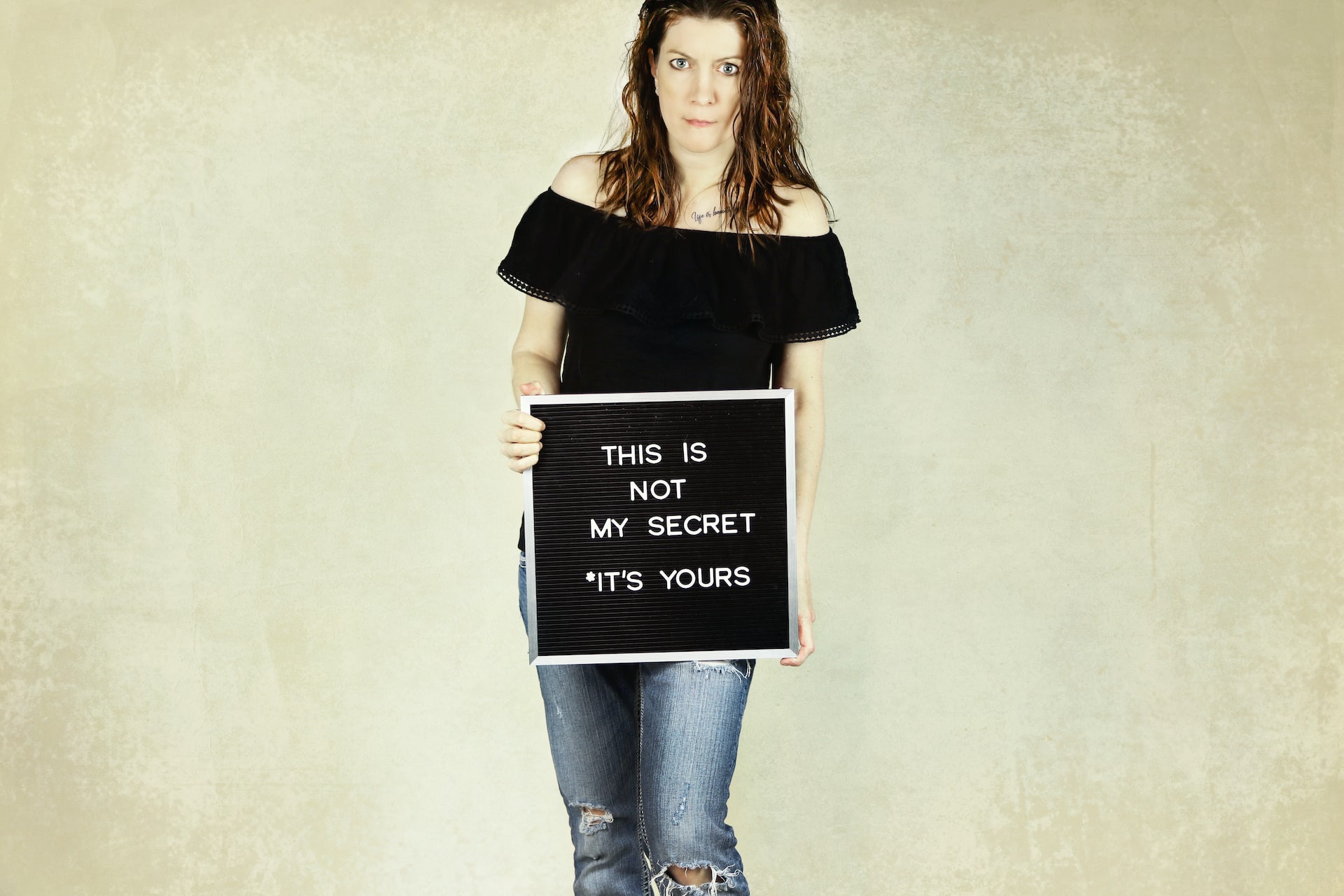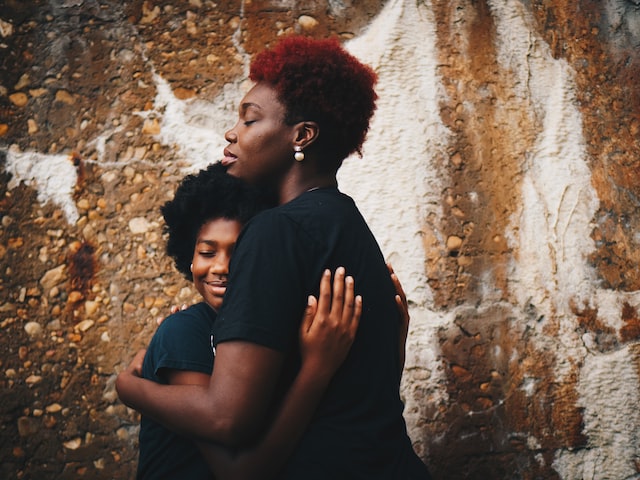TRIGGER WARNING BELOW.
April is Sexual Assault & Abuse Awareness Month. As a childhood sexual abuse survivor, I am committed to helping those who have been victimized. Part of this commitment is fostering awareness and education.
During the month of April, I will publish one blog post each week spotlighting an aspect of sexual abuse and assault recovery that is important to me personally.
TRIGGER WARNING ON THIS POST! This particular blog post has a lot of Big Feelings. I KNOW THAT A LOT OF READERS HAVE VARIOUS EXPERIENCES WITH THE CHURCH, ALL ALONG A SPECTRUM FROM POSITIVE TO NEGATIVE. PLEASE READ CAREFULLY.
**********

My friend’s name is Martha. She is a composite of several church women I have known over the years who have experienced the church’s acceptance of abuse. Women who have been blamed and criticized and judged for trying to stay safe and sane.
Who have been ostracized for trying to protect their children and themselves.
Who have been called unforgiving and, yes, possessed by Satan.
The church is set up for the protection of abusers using a unique mix of sexism, guilt, and shame. I was 14 years old before I began attending church. It was because of a boy, and I didn’t know any of the vocabulary. I didn’t know what a pastor was or what communion stood for or what went on in youth group.
I was 40 years old when I broke up with church in January, 2015. That’s 26 years of learned vocabulary, unspoken rules, experiences with sexism, and service in a community that I deeply loved. Churches are special places, like families, and — true to the comparison — can be rife with abuse.
A Special Kind of Victim-Shaming
Case in point: my friend, Martha. Pick your abuse — I’ve seen them all in the walls of the church. A woman could be molested or sexually assaulted by a church elder or pastor. It could be that her husband has been physically and emotionally abusing her. Or that he has had one or multiple affairs. Maybe he embezzled money or has a secret gambling addiction and now the family is bankrupt. Perhaps he is addicted to porn or alcohol or has a drug problem. Maybe he was even abusing children.
All of this happens in the church, because the church (theoretically) accepts all people. However, the church is not prepared to deal with the fallout from this behavior, which leads to a unique type of victim-shaming. When rape, abuse, or addiction (or whatever) comes to light, the blame automatically falls to the victim. People ask the following questions:
What were you wearing? Was it modest enough?
Why didn’t you stop it?
Were you drinking?
How did you encourage him?
Where were you?
Why didn’t you tell someone earlier?
Why did you stay?
Didn’t you pray about it?
The one comment that most fills me with rage is, “I know that you aren’t right with God, because otherwise this would not have happened to you.”
How is abuse the victim’s fault, exactly? Oh yeah, it’s NOT. These comments and questions are focused on the wrong person.
Church: You Have to Forgive…Now
Church is all about forgiveness. I get it, I was part of the church for 25 years. Forgiveness is the foundation for salvation.
When abuse, rape, or addiction come to light, the victims have one word shoved down their throats: FORGIVE. The focus is once again put on shaming the victims, with a variety of comments and questions:
Why does he have to leave? Where will he go?
You are being unreasonable. This isn’t fair.
God is all about second chances. Doesn’t he deserve a second chance?
Think of the children.
But he’s obviously in pain. He needs help.
Jesus forgave us, so you have to forgive this person.
Here’s the thing — grace requires a change of heart. Changes of heart are shown through behavior. If you pet a dog and he bit you, would you keep petting the dog in the name of forgiveness? Even when the dog continued to bite you?
That doesn’t make any sense.
It is a myth that destabilized families tear up a community. The community exists in order to help destabilized families, not tear victims apart. In addition to tearing down victims who are already dealing with traumatic situations, the church doesn’t want to take part in helping women and families. The victims of abuse and addiction are expected to keep petting dogs that bite — who’s going to take the dogs? The church? I wouldn’t bet on it.
Let Go and Let God

Women are not supposed to take action, to speak and stand up for themselves, especially in the church. They are to have Mother’s Day Teas and worship nights where they eat salads and maybe some desserts. They serve in the nursery or work with the school age kids in the children’s church programs. They sing in the church choir and maybe on the worship team if they are sharply dressed but not too sharp on the high notes.
We’re supposed to sit down, shut up, keep the kids quiet, be good hostesses, and pray. We need to, “Let go and let God.”
Let go and let God do what, exactly?
The implication is that what I am doing or thinking or feeling is not good enough. The validity of my actions or thoughts or emotions is not even taken under consideration. Somehow Martha has brought this situation on herself and needs to be better. Somehow women who have been victimized are supposed to “let go” (read: forget it) and “let God” (read: shut up about it) so that we can all stay comfortable and not have to talk about abusers and what to do about them.
There is a fundamental disconnect in the church regarding people who are victimized, those who victimize others, and what is required to simply be a decent human being in response. Instead of reflection and thought, there is placing blame and then the demand for forgiveness, and that’s if the situations come to light at all. The cognitive dissonance that is necessary regarding God’s reconciliation and redemption and abusers and our larger communities simply does not exist.
Church: A Sanctuary for Abusers?
The church prides itself on being of the world but not in the world. This is an institution built around a man who dared men who had not sinned to throw the first stone at a woman instead of calling her a slut. The man who had a conversation with a shady woman at a well instead of calling her a whore. The man who appeared to value women as people first, regardless of what the culture said.
The church needs to reflect this kind of grace, offering a safe space for women who are in crisis and recovering from abuse. To be above providing nothing to victims of abuse but heavy doses of guilt. To stop shaming victims, and instead provide practical and spiritual assistance.
Those who strive to be “of the world but not in it” may be surprised to note that simply not victim-shaming can put them way ahead of the cultural curve.
*For 24/7 help for sexual abuse and assault, contact RAINN by phone or chat here.
Try Trauma Recovery & Grief Recovery Coaching

Sign up here to get a free copy of Five Things Every Trauma Survivor Needs to Know AND
61 Tips About the Grief Experience.
Find out more about Trauma and Grief Recovery Coaching
I offer one-on-one sessions, groups, PTSD Remediation, and classes. Appointments are offered in-person and online.
Try Trauma Recovery and Grief Recovery Coaching for Free! Book a free 30-minute Discovery Call to find out more!











